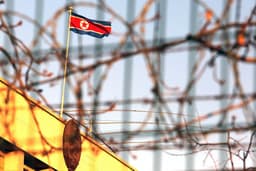Home / Environment / Fossil Fuel Footprint Endangers 2 Billion People Globally
Fossil Fuel Footprint Endangers 2 Billion People Globally
12 Nov, 2025
Summary
- 25% of world's population lives within 3 miles of fossil fuel projects
- 463 million people, including 124 million children, live within 0.6 miles of fossil fuel sites
- Fossil fuel industry linked to pollution, health issues, and human rights violations

According to a groundbreaking report by Amnesty International, the global footprint of the fossil fuel industry poses a grave threat to the health and rights of billions of people worldwide. As of November 2025, more than 18,300 oil, gas, and coal sites are distributed across 170 countries, with a quarter of the world's population living within just 3 miles of these operational facilities.
The report, titled "Extraction Extinction: Why the Lifecycle of Fossil Fuels Threatens Life, Nature, and Human Rights," found that nearly half a billion people, including 124 million children, now reside within 0.6 miles of these fossil fuel sites. The proximity to drilling wells, processing plants, and pipelines elevates the risk of serious health issues such as cancer, respiratory problems, and premature death. Additionally, the industry's activities have degraded land, contaminated water supplies, and damaged critical ecosystems.
The expansion of fossil fuel infrastructure has also been linked to human rights violations, including land grabs, cultural pillage, and violence against community leaders who peacefully oppose new projects. Indigenous peoples, who make up 5% of the global population, are disproportionately affected, with one in six fossil fuel sites located on their ancestral lands.
As world leaders gather for the 30th annual climate negotiations in Belém, Brazil, the report's findings underscore the urgent need to phase out fossil fuels and transition to sustainable energy sources to protect both the planet and its people.



